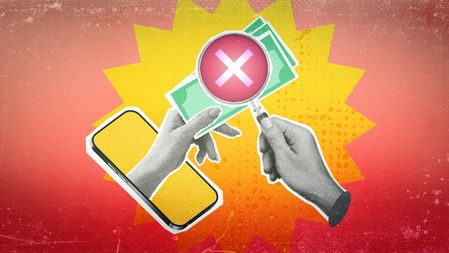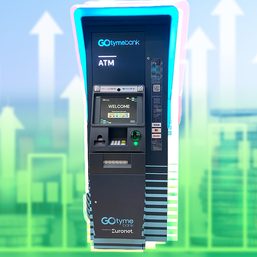SUMMARY
This is AI generated summarization, which may have errors. For context, always refer to the full article.
![[Finterest] Financial and travel scams to watch out for this Holy Week 2024](https://www.rappler.com/tachyon/2024/01/priest-scammed-january-27-2024.jpg)
MANILA, Philippines – Holy Week is a time for rest, reflection, and restoration. But for scammers, it’s also a time to strike.
For instance, during the Holy Week break in 2023, the Bank of the Philippine Islands released an advisory warning about an increase in online fraud. BPI said it “noted a rise in the number of emails and text messages containing bogus vacation vouchers and donation pledges.”
Why Holy Week in particular? Cybersecurity officials from the country’s top banks told Rappler that scammers are likely to prey on the generosity of people during Holy Week, or take advantage of the extra time that they have to read their messages.
How do you stay protected? Rappler spoke with BPI to find out.
Keep your money safe
BPI advises people to stay vigilant and remain cautious of emails and messages, especially those offering Holy Week-related promotions or deals. If you receive an email, especially from an unknown source, verify the sender’s identity first. Don’t click suspicious links or download attachments from the email. Legitimate banks will not send links in messages.
While withdrawing money during Holy Week, do not allow anyone to transact on your behalf and only transact through official and legitimate bank channels, such as ATMs. (READ: LIST: Bank schedules for Holy Week 2024)
And speaking of ATMs, BPI also told customers to be wary of the “unauthorized ATM charges” scam. Under this modus, a scammer may call you to say there are unauthorized charges in your account, and that you can reverse them by going to an ATM and following instructions from the caller. That is a scam.
Scammers may also impersonate bank officials while in a call with you, claiming that they need an “activation” or “confirmation” number from you. This is just another way to get you to give the one-time pin or OTP sent to your phone, so don’t fall for it.
While traveling, avoid using public Wi-Fi to do financial transactions as it is possible for tech-savvy fraudsters to steal your sensitive information through an unsecured network.
It also pays to keep your vacation plans private rather than posting about them on social media platforms, as cybercriminals could use that information for identity theft or to target homes for burglary.
Travel tips for Holy Week
The annual exodus of people from the cities has already begun as millions of Filipinos return to or visit the provinces this Holy Week.
Over a million passengers are expected to pass through the Ninoy Aquino International Airport from March 24 to 31, a 15% increase from 2023’s figures and a level close to pre-pandemic records. If you’ll be flying somewhere this Holy Week, the Manila International Airport Authority advises you to be in NAIA at least 3 hours before your international departure or 2 hours before your domestic departure.
International inbound travelers should also accomplish their eTravel registration beforehand. The Bureau of Immigration also reminds the public that filling up the eTravel form should be free, as it notes some passengers are being scammed through fake eTravel websites that allegedly charge between P3,000 and P5,000 in “fees.”
If trains are part of your transportation plans, take note of their adjusted operating hours this Holy Week. The Philippine National Railways will also be stopping operations for the next five years, starting Maundy Thursday, March 28.
Meanwhile, motorists out for long drives along expressways should also brace for the usual traffic buildup. Tollway operators remind the public to get an RFID sticker if they haven’t yet and load up their RFID wallets before passing through expressways.
If you’re traveling along the North Luzon Expressway, you may want to avoid the following peak hours:
- March 27, 10 am until March 28, 2 pm for northbound vehicles
- March 30, 4 pm to 11 pm for southbound vehicles
- March 31, 2 pm to April 1, 8 am for southbound vehicles
The Department of Transportation (DOTr) also warns the public to beware of 14 common travel scams while vacationing this Holy Week. These include:
- Fake accommodation
- Fake Wi-Fi
- Too-good-to-be-true deals
- “Free” vacation trap
- Fake travel agents
- Overpriced tours
- Charity cons
- Counterfeit cash
- Hidden CCTVs
- Fake taxi
- Selling lost luggage on Facebook
- Fake SIMs
- Fixers
- Cheap airline tickets on social media
Read the full description of each scam in the DOTr’s Facebook post below.
You may report travel scams through the DOTr’s Commuter Hotline at 09209643687 or the Scam Watch Pilipinas Hotline at 1326. – Rappler.com
Finterest is Rappler’s series that demystifies the world of money and gives practical advice on how to manage your personal finance.
Add a comment
How does this make you feel?


![[Finterest] Private banking: How the wealthy keep the money within the family](https://www.rappler.com/tachyon/2024/07/Finterest-wealth-between-the-family.jpg?resize=257%2C257&crop=425px%2C0px%2C1080px%2C1080px)
![[Finterest] Credit card 101: How does it work, and which one is for you?](https://www.rappler.com/tachyon/2024/06/credit-card-stock-photo.jpg?resize=257%2C257&crop_strategy=attention)
![[Finterest] How deposit insurance keeps your money safe when a bank closes](https://www.rappler.com/tachyon/2022/09/shutterstock-philippine-peso.jpg?resize=257%2C257&crop=329px%2C0px%2C900px%2C900px)
![[Finterest] How to earn on TikTok Shop, according to the app’s top vendors](https://www.rappler.com/tachyon/2024/05/tiktok-shop-top-vendors-1.jpg?resize=257%2C257&crop=310px%2C0px%2C720px%2C720px)







There are no comments yet. Add your comment to start the conversation.